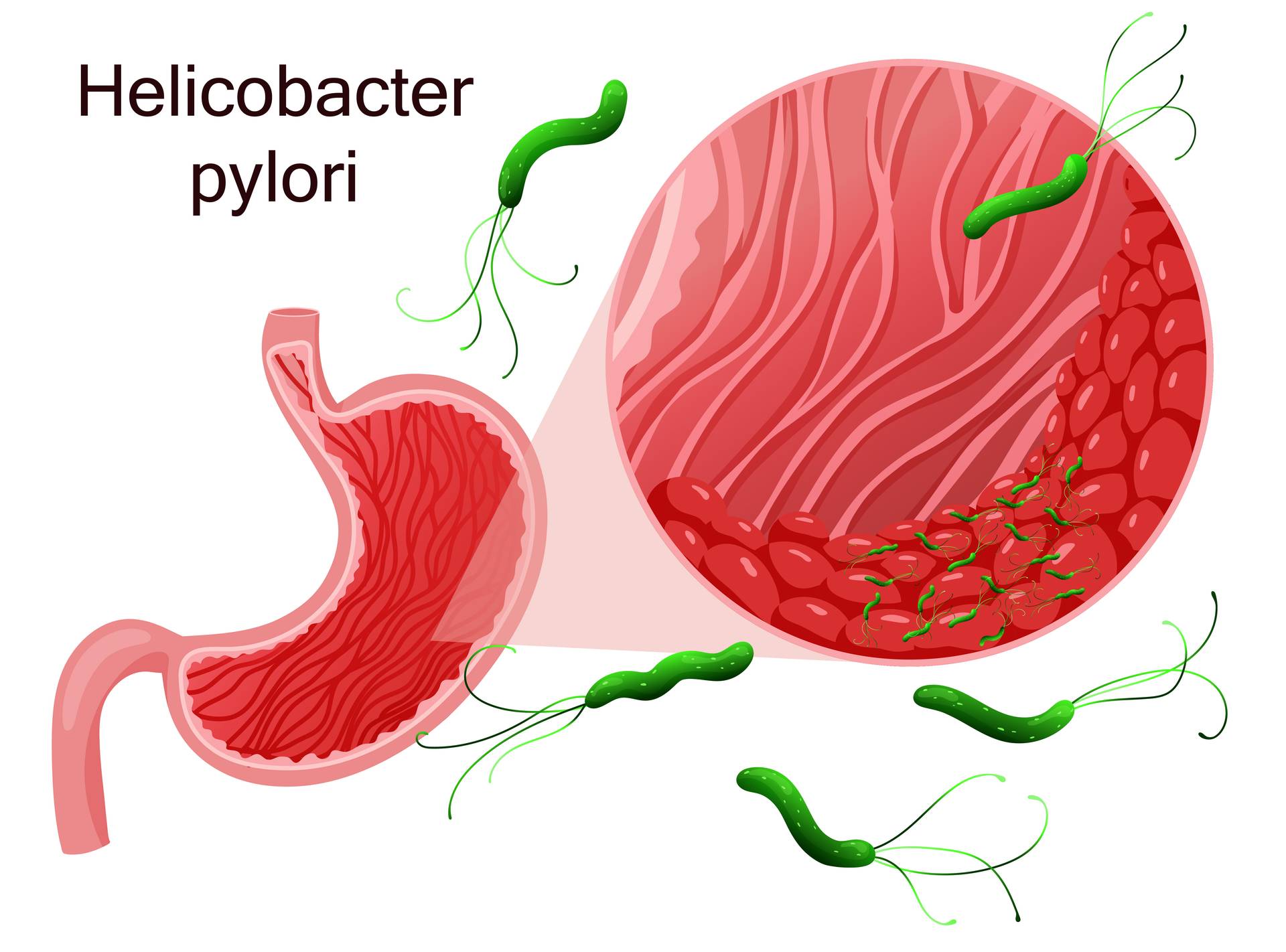

Acidity and Gut Health
Stomach acid, or gastric acid, is a watery, colourless fluid that’s produced by your stomach’s lining. It’s highly acidic and helps break down food for easier digestion. This helps your body absorb nutrients more easily as food moves through your digestive tract. In order to break down everything from meat to tough, fibrous plants, stomach acid has to be highly acidic. Your body is designed to handle average levels of stomach acid so that it doesn’t cause you any illness or health complications.
Symptoms of High Stomach Acid

- Abdominal pain which may lead to diarrhoea and heartburn
- Unintentional weight loss
- Chronic diarrhoea
- Feeling bloated or full
- Vomiting
- Nausea
- Black and tarry stool or blood in stool
- Fainting or lightheadedness
What Causes High Stomach Acid?
- H. pylori

H. pyloriis a bacteria that damages tissues in your stomach and duodenum (the first part of your small intestine). Having an active acute H. pylori bacterial infection in your stomach may lead to an increase in stomach acid, while chronic infection has been shown to reduce gastric acid secretion.
- Stress

Stress has been linked to delayed gastric emptying of acid. Research shows that chronic stress may also deplete prostaglandins, which protect the lining of the stomach from acid, increasing your risk of developing ulcers.
- Medications

Medications such as H2 blockers such as Pepcid (famotidine) and PPIs decrease acid production in the stomach. If you take one of these regularly, it is possible that you may experience a rebound in stomach acid production if you stop abruptly.
Treatment for Acidity

- Maintain a healthy weight. Excess pounds put pressure on your abdomen, pushing up your stomach and causing acid to back up into your oesophagus.
- Avoid tight fitting clothing, which puts pressure on your abdomen and the lower esophageal sphincter.
- Avoid foods that trigger your heartburn
- Avoid lying down after a meal. Wait 2 to 3 hours
- Avoid late meals.
- Elevate the head of your bed if you regularly experience heartburn at night or while trying to sleep. If that's not possible, insert a wedge between your mattress and box spring to elevate your body from the waist up. Raising your head with additional pillows usually isn't effective.
- Avoid smoking and alcohol. Both smoking and drinking alcohol decrease the lower esophageal sphincter's ability to function properly.
- Avoid large meals. Instead eat many small meals throughout the day.
What’s The Way Ahead?
Understanding the intricacies of your gut microbiome is paramount, as it plays a pivotal role in overall health. Taking a gut microbiome test can offer invaluable insights into its current state. By unravelling the microbial landscape within, you can pinpoint imbalances or deficiencies, allowing for tailored interventions such as dietary adjustments or probiotic supplementation. Armed with this knowledge, you can proactively nurture your gut and overall health.